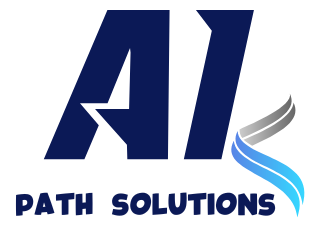Introduction
As artificial intelligence (AI) technology rapidly advances, its influence permeates various sectors, from healthcare and finance to education and entertainment. While AI offers substantial benefits—enhancing efficiency, fostering innovation, and providing personalized experiences—it also presents a myriad of ethical dilemmas and societal impacts that require careful consideration. This article delves into key issues such as algorithmic bias, data privacy, the implications of automation, and the responsibilities of AI developers.
Algorithmic Bias: A Critical Concern
One of the most pressing ethical challenges in AI is algorithmic bias. Machine learning models learn from historical data, which can inherently contain biases reflecting societal prejudices. If not addressed, these biases can perpetuate discrimination in areas such as hiring, law enforcement, and lending. For instance, biased algorithms might favor certain demographics over others, leading to unequal opportunities and reinforcing systemic inequalities.
To mitigate bias, developers must prioritize fairness in AI design, employing techniques like diverse training datasets, regular bias assessments, and transparency in algorithmic decision-making processes.
Data Privacy: Protecting Personal Information
As AI systems increasingly rely on vast amounts of data, concerns about data privacy and security become paramount. AI applications often collect sensitive personal information, raising questions about consent, ownership, and the potential for misuse. High-profile data breaches and the misuse of personal data have heightened public awareness and concern.
Regulatory frameworks, such as the General Data Protection Regulation (GDPR) in the EU, aim to establish clear guidelines for data handling, giving individuals greater control over their personal information. AI developers must adhere to these regulations, ensuring data is collected, stored, and utilized responsibly.
The Ethical Use of Automation in Decision-Making
The automation of decision-making processes through AI can enhance efficiency but also raises ethical concerns about accountability and transparency. When machines make decisions impacting people’s lives—such as in healthcare diagnoses or criminal sentencing—the question of accountability arises. Who is responsible if an AI system makes an erroneous decision?
To address these concerns, organizations should implement transparent AI systems, allowing stakeholders to understand how decisions are made. Moreover, maintaining a human-in-the-loop approach can ensure that critical decisions are reviewed by qualified individuals, balancing the efficiency of automation with ethical oversight.
Implications for Jobs and Economic Equality
The rise of AI and automation poses significant implications for the job market. While AI can increase productivity and create new job opportunities, it also threatens to displace many existing roles, particularly in industries reliant on routine tasks. The potential for job loss raises concerns about economic inequality, as low-skilled workers may be disproportionately affected.
To mitigate these impacts, governments and organizations must invest in reskilling and upskilling initiatives, ensuring that workers are prepared for the evolving job landscape. Policymakers should also consider implementing social safety nets to support those adversely affected by automation.
Human Interaction: The Changing Nature of Relationships
AI’s integration into daily life transforms how individuals interact with each other and technology. While AI can enhance communication and provide companionship (as seen in chatbots and virtual assistants), it may also lead to diminished human interaction and empathy.
As AI becomes more prevalent, it is crucial to strike a balance between leveraging technology for convenience and preserving meaningful human connections. Developers should prioritize creating AI systems that foster collaboration and enhance interpersonal relationships rather than replace them.
Responsibilities of AI Developers
AI developers play a critical role in shaping the ethical landscape of technology. They must consider the broader societal implications of their work, prioritizing ethical principles throughout the development lifecycle. This includes:
- Transparency: Clearly communicating how AI systems operate and the data they use.
- Accountability: Taking responsibility for the outcomes of AI systems and their impact on society.
- Inclusivity: Engaging diverse voices in the development process to ensure that various perspectives are considered.
The Role of Regulation in Shaping AI
Regulatory frameworks are essential for guiding the ethical development and deployment of AI technologies. Governments, industry leaders, and civil society must collaborate to create comprehensive regulations that address the unique challenges posed by AI. These regulations should focus on protecting individual rights, ensuring fairness, and promoting transparency.
As AI continues to evolve, adaptive regulatory approaches will be necessary to keep pace with technological advancements and address emerging ethical dilemmas.
Conclusion
The integration of AI into society presents both opportunities and challenges. As we navigate this complex landscape, it is vital to approach AI development thoughtfully, prioritizing ethical considerations and societal impacts. By addressing issues such as algorithmic bias, data privacy, and the implications of automation, we can harness the power of AI to benefit society while minimizing harm. Through collaboration, transparency, and accountability, we can create an ethical framework that ensures AI serves humanity positively and equitably.

